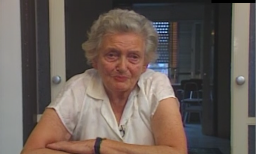You searched for: ���������������������������������������cxfk69���nie
<< Previous | Displaying results 1-5 of 5 for "���������������������������������������cxfk69���nie" | Next >>
-
Irena Sendler describes how she was arrested and tortured by the Gestapo
Oral HistoryIrena Sendler (1910–2008) was a member of the Council for Aid to Jews, codenamed “Żegota.” Żegota was a clandestine rescue organization of Poles and Jews in German-occupied Poland. Supported by the Polish government-in-exile, Żegota coordinated efforts to save Jews from Nazi persecution and murder. It operated from 1942 to 1945. Irena Sendler (Sendlerowa) was working as a social worker in Warsaw when World War II broke out in 1939. After the Nazis forced Warsaw’s Jews to move into the ghetto…
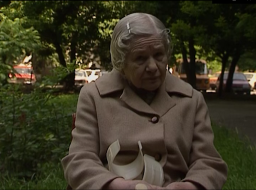
-
Miriam Peleg explains why Żegota was important
Oral HistoryMiriam Peleg (1913–1996) was a member of the Council for Aid to Jews, codenamed “Żegota.” Żegota was a clandestine rescue organization of Poles and Jews in German-occupied Poland. Supported by the Polish government-in-exile, Żegota coordinated efforts to save Jews from Nazi persecution and murder. It operated from 1942 to 1945. Born Maria Hochberg, Miriam was from a Polish-Jewish family. She grew up in a small town about 70 miles east of Kraków. As early as the summer of 1940, Miriam obtained…
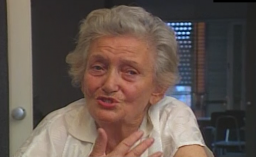
-
Murray Pantirer describes the antisemitic climate in postwar Krakow
Oral HistoryThe Germans occupied Krakow in 1939. Murray's family was confined to the Krakow ghetto along with the rest of the Jewish population of the city. In 1942, Murray and a brother were deported for forced labor in the nearby Plaszow camp. In May 1944, his brother was transferred to Auschwitz and Murray was sent to the Gross-Rosen camp in Germany. Murray was later transferred to Bruennlitz, in the Sudetenland, as a forced laborer for German industrialist Oskar Schindler. Schindler helped the Jews who worked for…
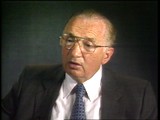
-
Władysław Bartoszewski discusses Żegota
Oral HistoryWładysław Bartoszewski (1922–2015) was a co-founder and member of the Council for Aid to Jews, codenamed “Żegota.” Żegota was a clandestine rescue organization of Poles and Jews in German-occupied Poland. Supported by the Polish government-in-exile, Żegota coordinated efforts to save Jews from Nazi persecution and murder. It operated from 1942 to 1945. After World War II broke out in 1939, Władysław worked as a janitor at a Polish Red Cross clinic. In the fall of 1940, Władysław was caught…
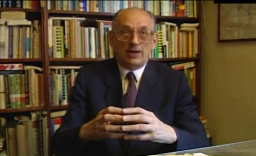
-
Miriam Peleg describes why she joined Żegota
Oral HistoryMiriam Peleg (1913–1996) was a member of the Council for Aid to Jews, codenamed “Żegota.” Żegota was a clandestine rescue organization of Poles and Jews in German-occupied Poland. Supported by the Polish government-in-exile, Żegota coordinated efforts to save Jews from Nazi persecution and murder. It operated from 1942 to 1945. Born Maria Hochberg, Miriam was from a Polish-Jewish family. She grew up in a small town about 70 miles east of Kraków. As early as the summer of 1940, Miriam obtained…
